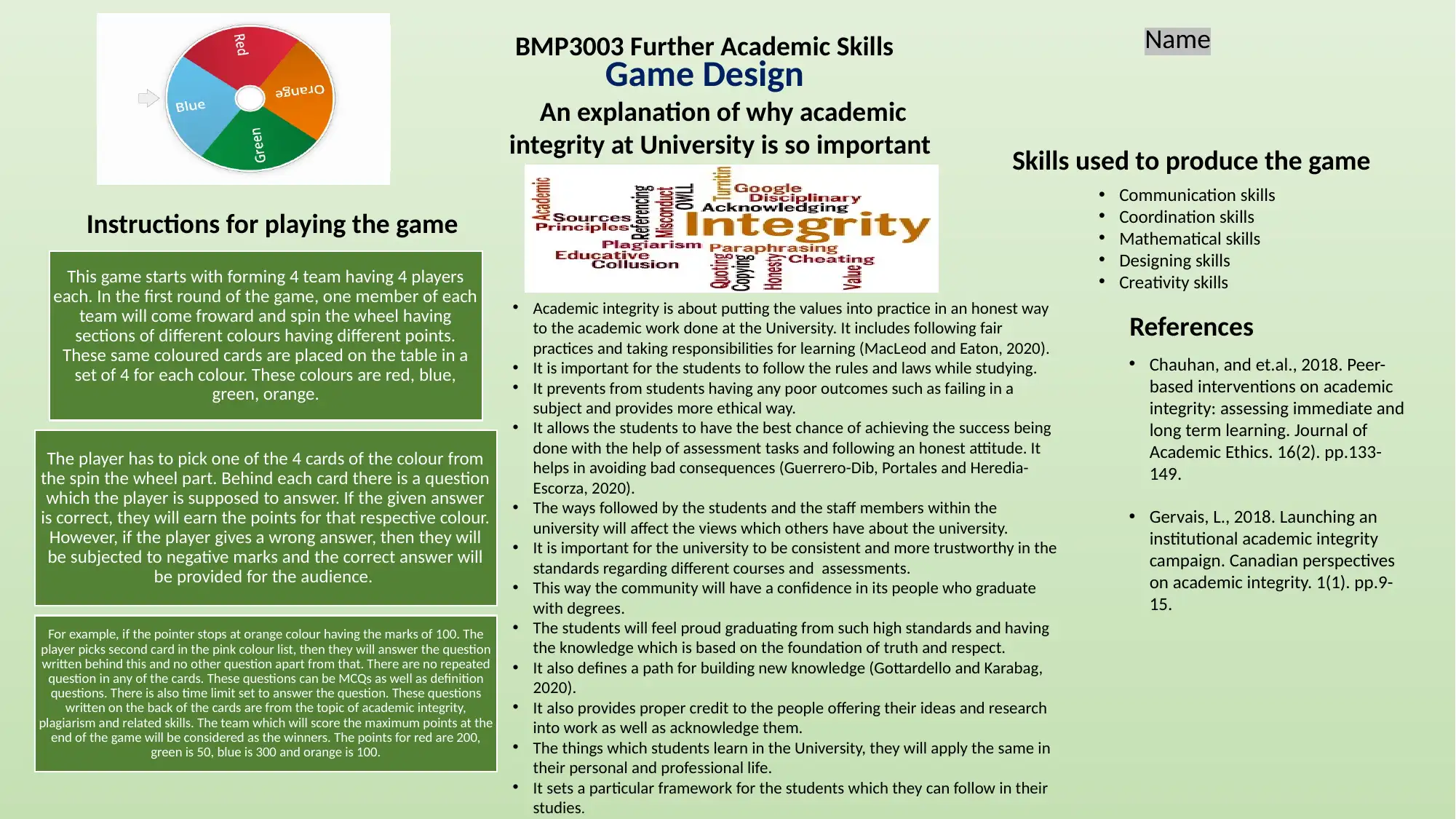Importance of Academic Integrity at University - Further Academic Skills
VerifiedAdded on 2023/06/18
|1
|693
|237
AI Summary
This presentation highlights the significance of academic integrity at university and its impact on students and the community. It also includes a game designed to enhance communication, coordination, mathematical, designing, and creativity skills. The game involves forming teams, spinning a wheel, and answering questions related to academic integrity, plagiarism, and related skills. The team with the highest score wins. The presentation also discusses the skills used to produce the game and references to academic integrity.
Contribute Materials
Your contribution can guide someone’s learning journey. Share your
documents today.
1 out of 1






![[object Object]](/_next/static/media/star-bottom.7253800d.svg)